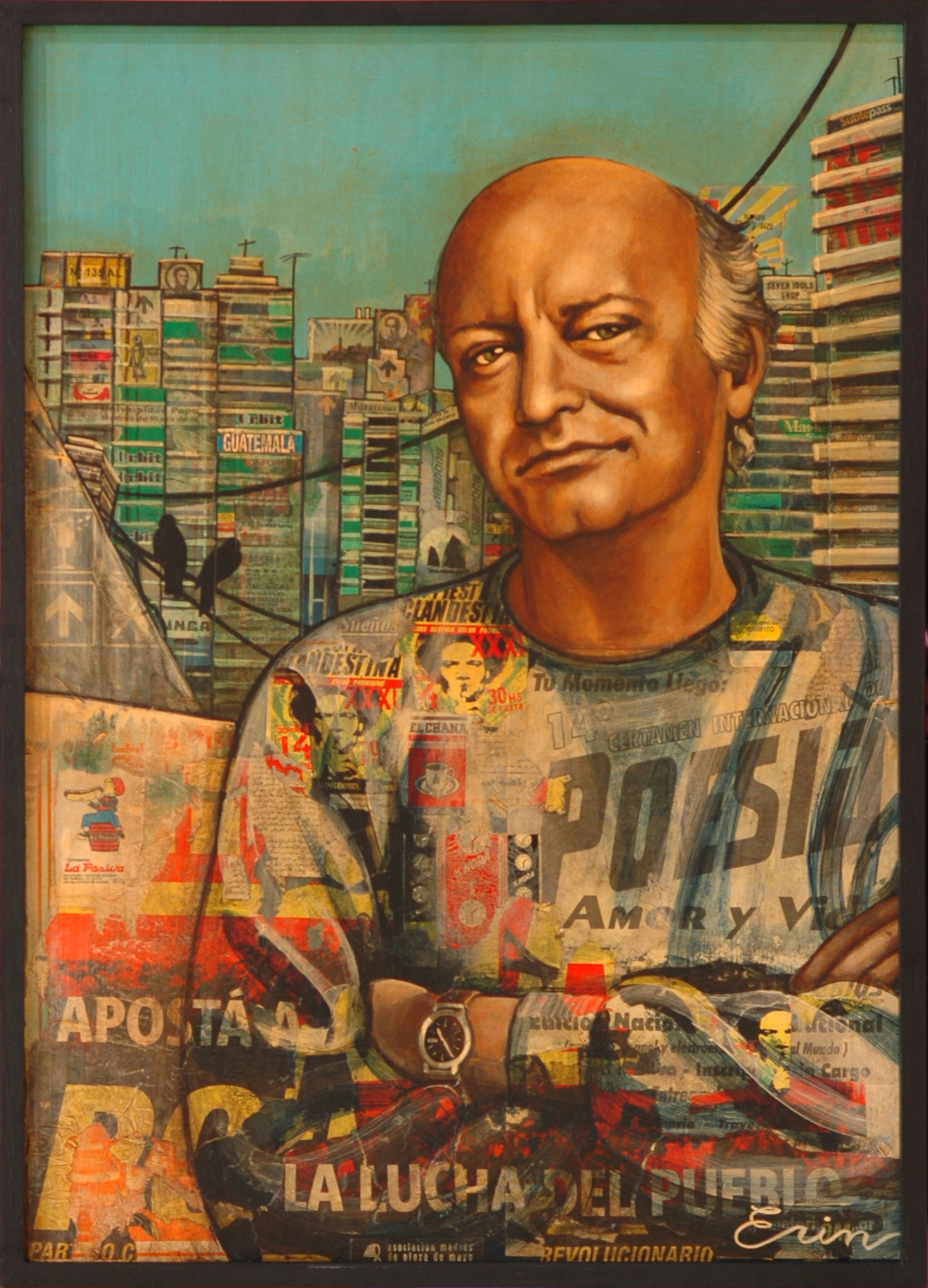Latin America
Related: About this forum(Found this unexpectedly) OPEN VEINS of LATIN AMERICA
“We have maintained a silence
closely resembling stupidity”.
--From the Revolutionary Proclamation
of the Junta Tuitiva, La Paz, July 16, 1809
Eduardo Galeano
OPEN VEINS
of
LATIN AMERICA
FIVE CENTURIES OF THE PILLAGE 0F A CONTINENT
Translated by Cedric Belfrage
25TH ANNIVERSARY EDITION
FOREWARD by Isabel Allende
LATIN AMERICA BUREAU
London
. . .
Foreword
Isabel Allende
Many years ago, when I was young and still believed that the world could be
shaped according to our best intentions and hopes, someone gave me a book
with a yellow cover that I devoured in two days with such emotion that I had to
read it again a couple more times to absorb all its meaning: Open Veins of
Latin America, by Eduardo Galeano.
In the early 1970s, Chile was a small island in the tempestuous sea in
which history had plunged Latin America, the continent that appears on the
map in the form of an ailing heart. We were in the midst of the Socialist
government of Salvador Allende, the first Marxist ever to become president in
a democratic election, a man who had a dream of equality and liberty and the
passion to make that dream come true. That book with the yellow covers,
however, proved that there were no safe islands in our region, we all shared
500 years of exploitation and colonization, we were all linked by a common
fate, we all belonged to the same race of the oppressed. If I had been able to
read between the lines, I could have concluded that Salvador Allende's
government was doomed from the beginning. It was the time of the Cold War,
and the United States would not allow a leftist experiment to succeed in what
Henry Kissinger called "its backyard." The Cuban Revolution was enough; no
other socialist project would be tolerated, even if it was the result of a
democratic election. On September 11, 1973, a military coup
ended a century of democratic tradition in Chile and started the long reign of
General Augusto Pinochet. Similar coups followed in other countries, and soon
half the continent's population was living in terror. This was a strategy
designed in Washington and imposed upon the Latin American people by the
economic and political forces of the right. In every instance the military acted
as mercenaries to the privileged groups in power. Repression was organized on
a large scale; torture, concentration camps, censorship, imprisonment without
trial, and summary executions became common practices. Thousands of people
"disappeared," masses of exiles and refugees left their countries running for
their lives. New wounds were added to the old and recent scars that the
continent had endured. In this political context, Open Veins of Latin America
was published. This book made Eduardo Galeano famous overnight, although
he was already a well-known political journalist in Uruguay.
Like all his countrymen, Eduardo wanted to be a soccer player. He also
wanted to be a saint, but as it turned out, he ended up committing most of the
deadly sins, as he once confessed. "I have never killed anybody, it is true, but it
is because I lacked the courage or the time, not because I lacked the desire," He
worked for a weekly political magazine Marcha, and at twenty-eight he
became the director of the Important newspaper Epoca, in Uruguay. He wrote
Open Veins of Latin America in three months, in the last ninety nights of 1970,
while he worked during the day in the university, editing books, magazines,
and newsletters.
Those were bad times in Uruguay. Planes and ships left filled with young
people who were escaping from poverty and mediocrity in a country that
forced them to be old at twenty, and that produced more violence than meat
or wool. After an eclipse that had lasted a century, the military invaded the
scene with the excuse of fighting the Tupamaro guerrilla. They sacrificed the
spaces of liberty and devoured the civil power, which was less and less civil.
By the middle of 1973 there was a military coup, he was imprisoned, and
shortly afterward he went into exile in Argentina, where he created the
magazine Crisis. But by 1976 there was a military coup also in Argentina, and
the "dirty war" against intellectuals, leftists, Journalists, and artists began.
Galeano initiated another exile, this time in Spain, with Helena Villagra, his
wife. In Spain he wrote Days and Nights of
9
Love and War, a beautiful book about memory, and soon after he began a sort
of conversation with the soul of America: Memories of Fire, a massive fresco
of Latin American history since the pre-Colombian era to modern rimes. "I
imagined that America was a woman and she was telling in my ear her secrets,
the acts of love and violations that had created her." He worked on these three
volumes for eight years, writing by hand. "I am not particularly interested in
saving time; I prefer to enjoy it." Finally, in 1985, after a plebiscite defeated
the military dictatorship in Uruguay, Galeano was able to return to his country.
His exile had lasted eleven years, but he had not learned to be invisible or
silent; as soon as he set foot in Montevideo he was again working to fortify the
fragile democracy that replaced the military junta, and he continued to defy the
authorities and risk his life to denounce the crimes of the dictatorship.
More:
https://library.uniteddiversity.coop/More_Books_and_Reports/Open_Veins_of_Latin_America.pdf


